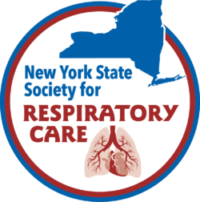Ad hoc committee members
- Stephen Smith
- Lisa Endee
- Brandi Ewing
- Felix Khusid
- Katherine Herlihy (legal counsel)
History
The Ad Hoc Team began working on collecting Letters of Support from November 2023 to February 2024. The team collected over 60 Letters of Support for the BS in RT.
Legal counsel was impressed with the results of this initiative and Assemblyman Magnarelli was so pleased with the outpouring of support that he contacted Assemblywoman Fahy to move help this bill forward.
See below are some excerpts from the Letters that we received from physicians supporting the NYSSRC initiative.
“For respiratory therapists to provide quality care, be an actively involved member of the healthcare professional team, be able to make decisions founded on data-driven evidence, and provide care in various healthcare settings, it will be essential for them to be skilled in critical thinking and problem solving, in order to provide optimal patient care in this ever-changing advancement in medicine and medical technology. This increase in clinical skills and competence will require a greater academic standard to meet these requirements, providing respiratory therapists with the autonomy to optimally treat patients with cardiopulmonary pathologies and to play an expanded role in disease management and ultimately, improving patient outcomes.”
Dr. Anthony Saleh, Program Director, Pulmonary & Critical Care Medicine Fellowship; Associate Clinical Professor of Medicine, Weill Cornell Medical College
“Since New York first recognized the practice of respiratory therapy in 1992, cardiopulmonary medicine, pharmaceutical treatment and medical technology have significantly advanced, as has the academic preparation and professional standards for Respiratory Therapists. A corresponding increase in educational requirements for licensure to a bachelor’s degree is necessary to ensure that future respiratory therapists are adequately academically prepared for the ever-increasing complexity of the patient population, and treatment and technological advancements. Associate degree programs have a limited amount of time to properly deliver the curriculum, while bachelor’s degree programs have the ability for educational training and experience in more advanced clinical practice, teaching, management, and research.”
Anshu Singh, MD, CMD, HPM; Medical Director, Long Island State Veterans Home (LISVH)
“The Respiratory Therapy field has expanded from simple conventional ventilation to complex and creative ventilation and beyond…. I have watched experienced therapists try to keep up, but new graduates need more basic knowledge to keep up their diagnostic and therapeutic skills. The knowledge and skills required to assess the patient, run the specialized laboratories, deliver a wide variety of assisted ventilation and medication delivery has expanded exponentially. As the field has expanded, the new two-year graduates do not have enough of the basic knowledge to deliver optimal care. Two years is not enough training at the current state of the art. This legislation will finally bring their training to a similar level to our occupational therapists, physical therapists, and speech therapists. This move is well deserved and long overdue.”
Howard Heiman, MD; Fellow of the American Academy of Pediatrics, Colonel, US Army, Retired, Director of Neonatal Transport, Northwell Health
“With the massive expansion of critical care knowledge in the years since the dawn of the profession, Respiratory Therapists’ scope of practice has grown and so should their educational requirements. I am in full support of the measures as listed in the proposed legislation including but not limited to the increase of minimum degree for respiratory therapy licensure to that of a Bachelor’s equivalent, the end of the lesser licensure status of “Respiratory Therapist Technician,” and the creation of a pathway for all currently licensed respiratory professionals to continue to practice while meeting the new educational standards.”
Steven Miller, MD; Medical Director of Respiratory Care; COVID-19 Critical Care Task Force; Director of Non-Operating Room Anesthesia (NORA) Services, New York-Presbyterian Hospital, Columbia University Irving Medical Center
The team held a preparatory meeting on Wednesday, March 6 for the scheduled meeting with Assemblywoman Fahy, Chair of Higher Education, regarding the bill in her committee.
Monday, April 8 the team met with Assemblywoman Fahy’s legislative staff to discuss some concerns with the bill and what additional steps are needed to move the bill out of committee for a vote in Assembly. Next steps include meeting again with SED to iron out some minor details about the bill and try to get it on the docket for this year.
